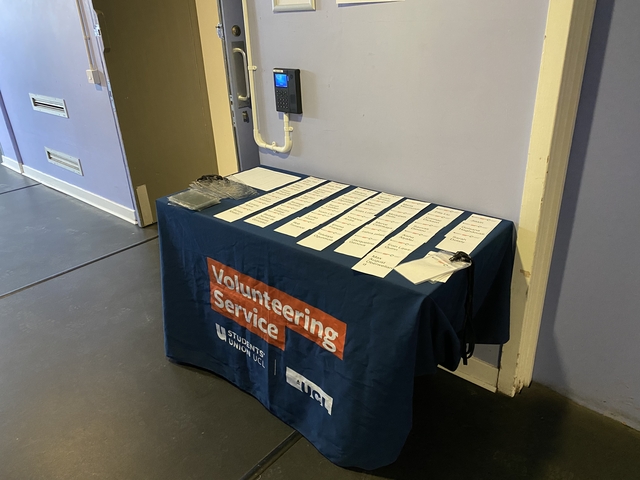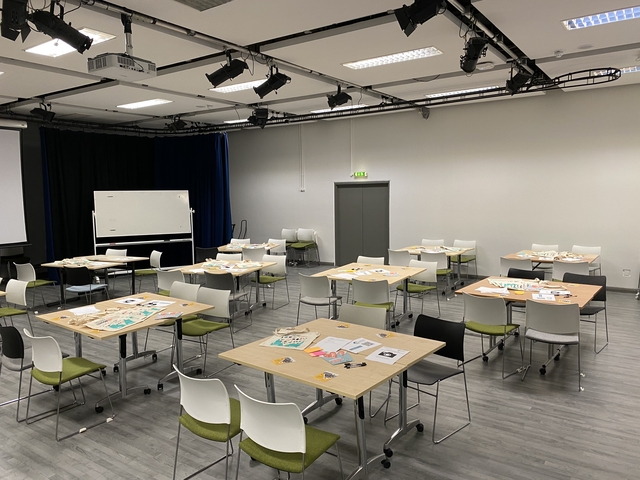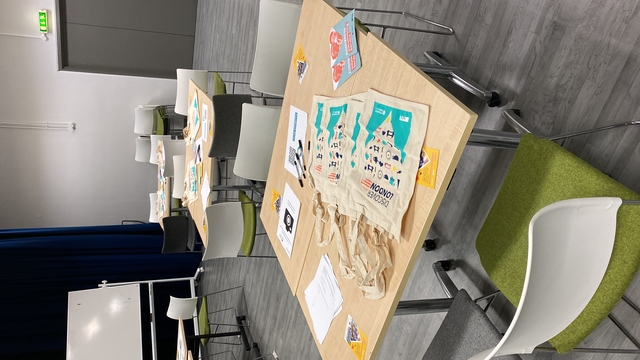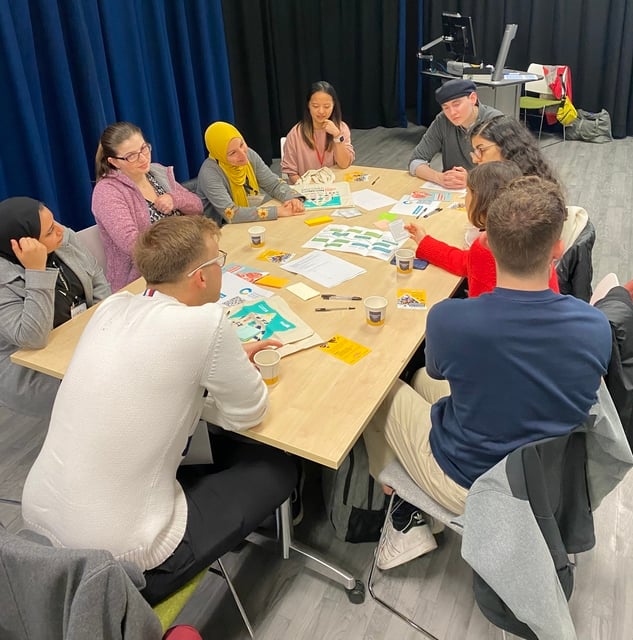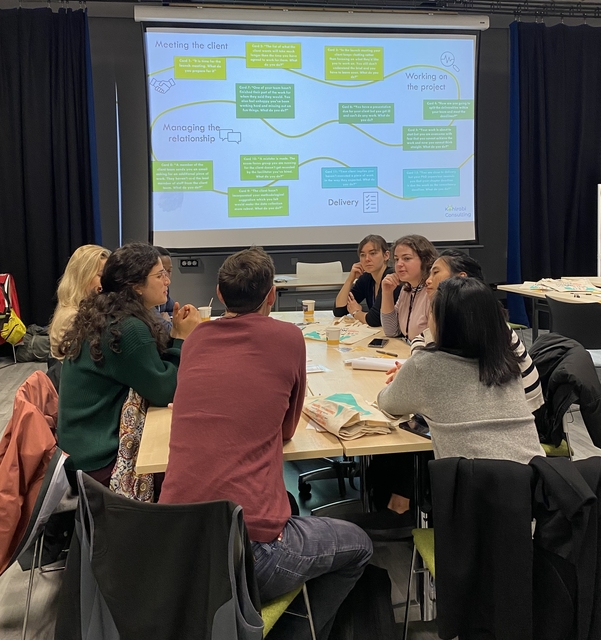What’s a Community Research Clinic for?
The Community Research Clinic, a joint venture between the UCL Volunteering Service’s Community Research Initiative and Kohlrabi Consulting, offers London’s small-to-medium sized charities, other non-profit organisations, and grassroots community groups the opportunity to access high quality research consultation to turn their ideas, hunches, and experiential knowledge into a research project.
Being able to evidence change or effectiveness is not the preserve solely of those in research settings, like universities. The voluntary & community sector must also show that what they are doing ‘works’. The difference, however, is that this sector is one of activism, social change, and practical support for some of our most vulnerable citizen or pressing social issues. Very often, and especially for grassroots and smaller organisations, research capacity is zero, with the focus firmly on making tangible and real change for people or places.
What’s this got to do with PhD students?
What are you going to do next? But what job can you do with that? As a PhD student, these are so often questions you’re asked by colleagues, at parties, by your family! Nearing the end of a PhD is a daunting time. There’s so much to do, imposter syndrome is rife, and worries about what to do next can be high!
Assumptions are often made that a PhD leads you into a world of postdoctoral research positions, fellowships, and lectureships. This is changing, driven by shifts in funding landscapes, shortcomings of academia, and a growing realisation that perhaps academia is not for everyone!
There are so many skills gained when studying for a PhD but there can often be a disconnect from real-world settings so it can be hard to know what you can do afterwards. It’s not uncommon to feel a sense of failure though, if you have a rising feeling that you don’t want to do a postdoc and what has been the point of the last 3 years?
Consultancy might be just the ticket, where research skills like critical thinking, problem-solving, knowledge synthesis, organisation, and communication skills are central. We therefore set about designing a training opportunity, just for PhD students to help with this crucial question - what next!
Consult on what?
This is what Fran Harkness (she/her) of Kohlrabi Consulting asked our 40+ PhD students during their research consultancy training ahead of the Community Research Clinic on Thursday 10 November. Sharing her experiences, Fran showed students that research consultancy is within their grasp and, importantly, skill set. It was a powerful moment when all our trainees repeated out loud ‘I am a consultant’.
On a consultancy journey
Fran, supported ably by colleagues Corne and Yuncong, then sent our trainee consultants on a consultancy journey, by way of a game. Moving through several real-world consultancy scenarios, armed with prompt cards students shared ideas, strategies, and experiences to meet the challenges they encountered across the board. Scenarios ranged from managing a client’s expectations that will take longer than the time available to falling ill ahead of a key presentation to your client. The consultancy game is brutally realistic with trainees being asked to consider the scenario where they are about to start an agreed piece of work for a client but a deep fear kicks in, rendering you unable to think straight.
These scenarios caused immediate enthusiastic and passionate conversations with an infectious energy in the room. The knowledge sharing was powerful as students from maybe 40 different disciplines brought their perspectives to the table.
Keeping wellbeing at the centre
What is really striking about this training is Kohlrabi’s emphasis on resilience and wellbeing. Acknowledging imposter syndrome and checking in with how some of the scenarios made trainees feel. There were always others nodding in support and agreement when anyone shared something that impacted their wellbeing. Even better was when strategies were shared – learning from others and realising you are not alone.
The clinic
Heading into the afternoon, trainees arrived back in the room to a consultation room with 15 workstations, one for each client. Clients arrived from 14.00 and were introduced to their trainee consultants before conversations began about their work and research needs. Trainees tried to gain a background understanding of their client’s work, using probing questions and active listening skills

Frames Of Mind lead artists, aka Bo Chapman and Zoe Flynn, together with their trainee consultants. Bo and Zoe came to the clinic to get support to evidence better the health and wellbeing impact of their participatory arts organisation - crucially at a time of local cuts.
What did our clients say?
It was a very illuminating conversation with my trainee consultants. They were really thoughtful and contributed to a great research idea for us!
The clinic was really helpful for fleshing out and firming up our project. It was enjoyable and rewarding to talk with - and be quizzed by! - the trainee consultants.
Today, I felt relief that our information and experience can be collated, analysed, and shared for the benefit of humanity. I took home hope! Caranaval del Pueblo Associacion
What do our students say?
The consultancy journey game was really helpful and made me excited to get into consultancy myself! Working with my client during the clinic made me realise I know what I am doing (mostly), research-wise!
My take-home from today's event was first, be open; second, I am somebody; and finally, get out of my comfort zone!
The new skills I feel I acquired today include time management, risk factors, how to deliver a solution to a client, and teamwork! My take-home is that I can apply similar strategies that I do in my PhD to solve a community client's case in a totally different field.
What happens now?
At least 14 project ideas were outlined during the clinic. These will be moderated by the Community Research Initiative manager, Anne Laybourne, before being posted on the Community Noticeboard. This is how we will advertise the new community-led research opportunities to 100s of UCL’s master’s students.
If you like the sound of this, check out the Social Hackathons that our Volunteering colleagues run - next round February 2023.
